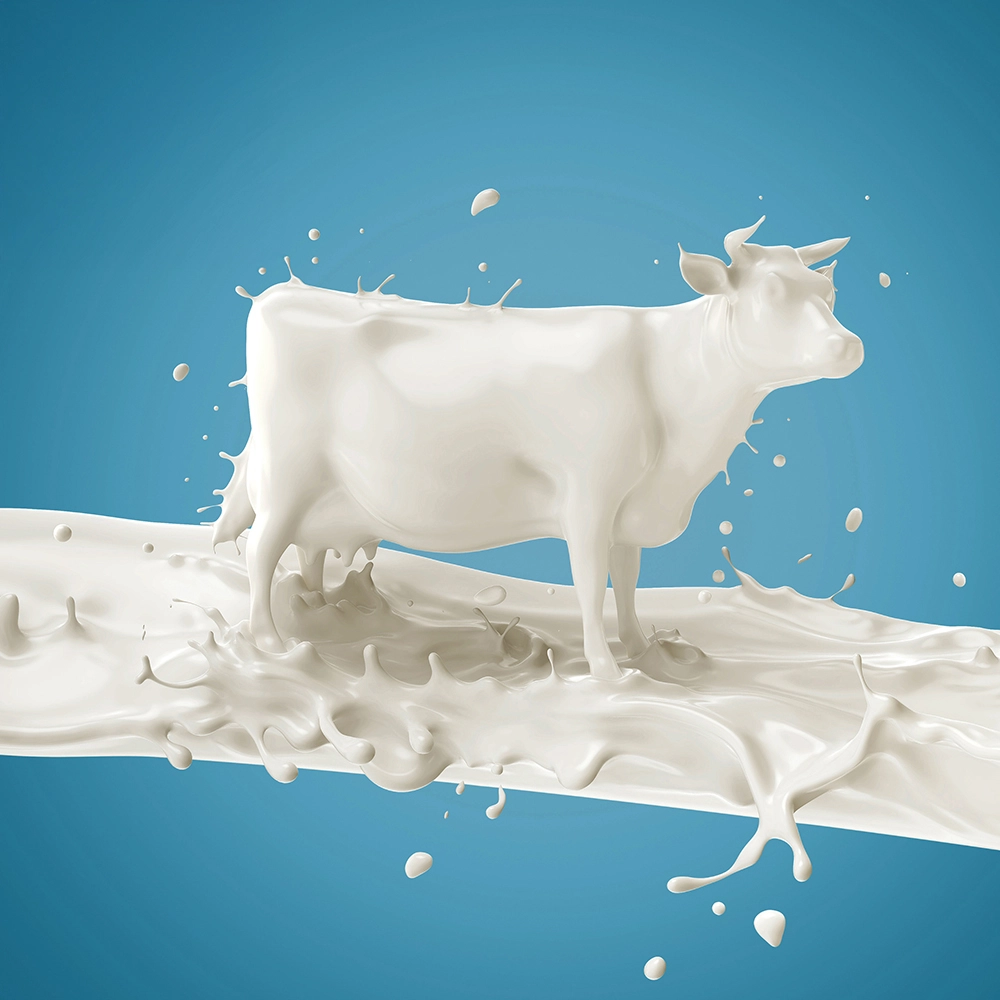Do we actually need dairy?
We've all been told from a young age that milk and dairy products are an important part of our diet as they make our bones and teeth stronger. But do we need dairy products as adults?

Milk can be a great source of nutrients, like calcium, vitamins and minerals, that help bones and teeth develop. Dairy products can also be a decent source of protein and energy. But they’re also high in calories and saturated fat and may cause intolerances and allergies.
How do you decide whether to eat dairy?
Eating or not eating dairy is a personal choice. If having dairy in your diet is working for you and helping you to achieve your health and fitness goals, go for it!
But if you’re trying to lose weight, cut down on calories, or think dairy might be causing bloating or other health issues, it may be worth experimenting with reducing your intake, or cutting it out of your diet completely.
Intolerances and allergies
Many people become lactose intolerant when their bodies stop producing the enzyme needed to break down lactose, the sugar found in dairy products. The reduced ability to digest lactose affects approximately 65% of the world’s population and, in the UK, it’s more common in people of Asian or African-Caribbean descent.
Symptoms of lactose intolerance can include bloating, nausea, stomach cramps and wind. Some people are also allergic to the protein in cow’s milk, which can cause symptoms like rashes, swelling, diarrhoea and a blocked or runny nose.
If you think you may be intolerant to lactose or cow’s milk, you could try temporarily removing dairy products from your diet or experimenting with dairy alternatives to see if your symptoms reduce.
Losing weight
If you’re wanting to lose weight, consider if there are better food choices you can make instead of eating dairy, like foods that contain fewer calories and less saturated fat. It’s easy to forget the calories contained in drinks, but if you add milk to cups of tea or coffee, these calories can quickly add up.
To reduce your calorie intake, you could try swapping cow’s milk for a lower calorie unsweetened milk, like almond milk.
What are the alternatives?
Although dairy isn’t necessarily essential to our diets, to maintain a healthy and balanced diet, we still need the nutrients found in dairy products, like calcium and vitamin D.
These days, there are lots of calcium-fortified alternatives to common dairy products, like plant-based milks or vegan cheese, that are designed to give you these nutrients. These alternatives can be great but, be aware that nutrients are generally best consumed in their natural form rather than when they’re added during the manufacturing process.
You could also try non-dairy foods that are a good source of calcium, like tofu, nuts, broccoli, cabbage and fish with bones, like salmon or sardines.
The verdict
So … should you be eating dairy?
It’s up to you!
Be aware of the advantages and disadvantages of eating and not eating dairy and make an educated decision based on what works for you.